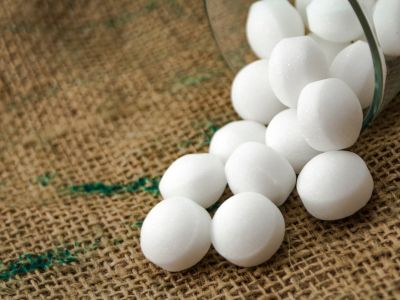Can I Use Mothballs in the Garden?
Using mothballs to repel pests in the garden presents a danger to children, pets and wildlife that visit your garden. Young children explore their surroundings by putting things in their mouths. Animals might think moth balls are food. Ingesting even a small amount of the toxic chemicals in mothballs can cause serious harm that requires immediate medical or veterinary attention. Mothballs in gardens also present a risk if you breathe the fumes or get the chemicals on your skin or in your eyes. Using mothballs in gardens also causes significant environmental problems. They usually contain either naphthalene or paradichlorobenzene. Both of these chemicals are highly toxic and can get into the soil and groundwater. These mothball hazards may even harm the plants you are trying to protect. Mothballs are insecticides that are controlled by the Environmental Protection Agency. This makes it illegal to use them for any purpose or by any method that isn’t specified on the label. Mothballs are labeled only for use in closed containers for the control of clothes moths.
Alternatives to Mothballs
There are a number of ways to eliminate animal pests from the garden without using mothballs. Hazards are minimal when you avoid using chemicals and poisons. Here are some tips on using safe control measures as alternatives to mothballs.
Traps. The persistent use of traps is a good way to reduce rodent populations and the only effective way to get rid of chipmunks. Use traps that capture animals without harming them and then release them in countryside fields or forests. Fences. Although you may not be able to construct rodent-proof fences around your entire property, fencing in your garden area is a good way to get rid of rodents. Use material with openings no more than 2 inches (5 cm.) wide. To keep out gophers, groundhogs and rabbits, build the fence 3 feet (1 m.) high with an additional 6 inches (15 cm.) underground. Repellents. You’ll find many products at your garden center that claim to repel animals. Some are more effective than others, so be prepared for some trial and error. Well-used clay cat litter sometimes chases off burrowing animals if you pour it directly into the burrow openings. Hot pepper is said to repel squirrels and rabbits.
